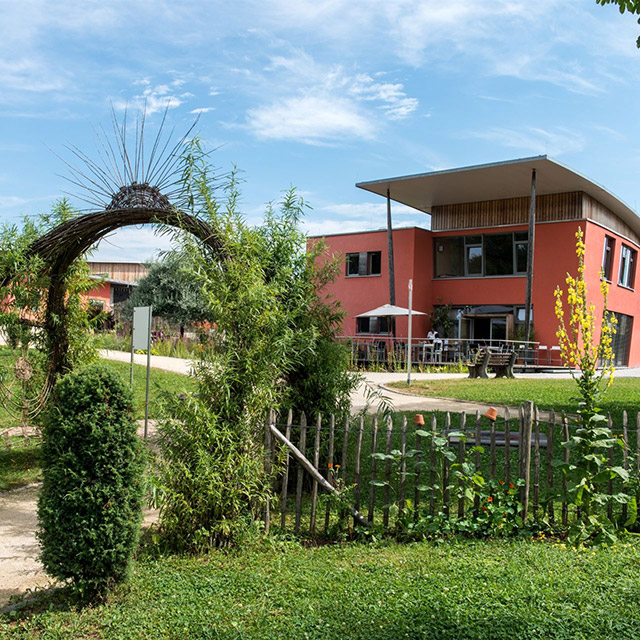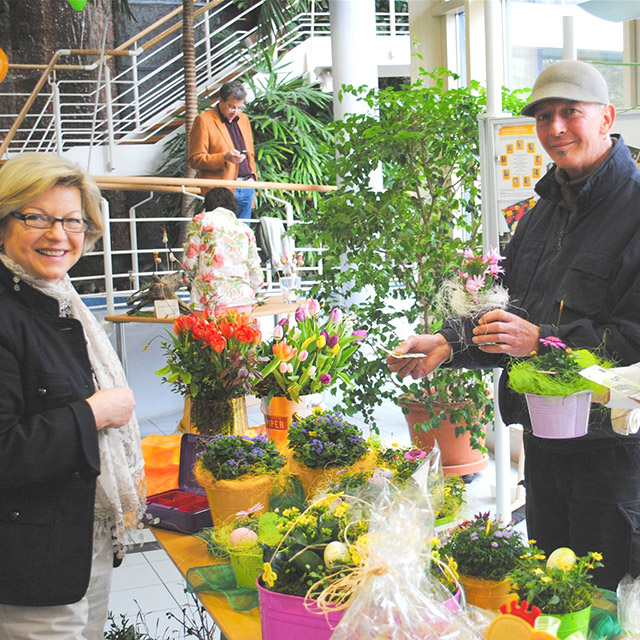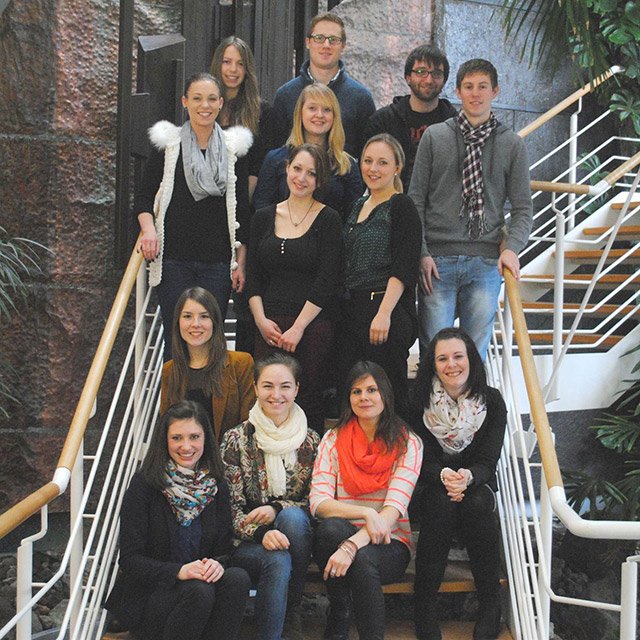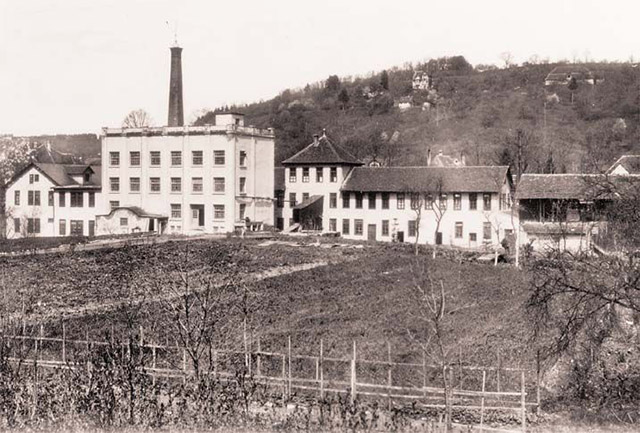Weleda
“The year 2012 was like sailing on the high seas in biting wind and under considerable turbulence,” says Uwe Urbschat. The traditional company Weleda witnessed an unusually rapid and vital change in 2012. After decades characterized by stable revenues, beginning in 2008 Weleda repeatedly experienced losses. Within a week, the two main anthroposophical shareholders exchanged both the board and the chief executive officer. At the same time, they introduced the new “Culture and Identity Management” under the leadership of Uwe Urbschat. This particular corporate culture, which grew over decades, should be firmly anchored within the company right at the time when Weleda had to find a new balance between humanitarian and economic efficiency.
The painful restructuring made the company more efficient. However, Weleda always set its core competency on humanity. “In harmony with man and nature” is the slogan of co-founder Rudolf Steiner.
Due to his experience, the new CEO, Ralph Heinisch, successfully restructured the “black figures” of the company. At the same time, Uwe Urbschat took care of the roots and the inner stability of the enterprise. Particularly in times of change, employees are looking for meaning and values which provide stability. Weleda started various offers (again) to meet those needs. Curricula on identity and the core values of the company, programs on anthroposophy, life biographies, and so-called working hours—which provided information about the business, its history, and its products—helped.
Meanwhile, Weleda navigates back to calm waters. In the calm after the storm, it became obvious: before, during, and after the crisis, the company has created a model environment, which gave employees the opportunity to grow beyond themselves.
THE GENERATION NETWORK
Already in 2005 Weleda had received recognition from the outside. Chancellor Gerhard Schröder handed it the Innovation Award for the idea of the so-called “Generation Network.”
The idea was born in the year 2003 when Weleda, as the first German employer, showed interest in certification for the “Work and Family” initiative from the Hertie Foundation. By now the company has acquired the “Work and Family Audit” certificate for the fourth time and distinguished itself as a family-oriented company.
In preparation for this certification, the personnel managers of Weleda asked: How can the two areas, work and life, be better balanced? Little did they know that the best answers come from those who relate to this issue or who are directly affected. They conducted a survey of current and former employees. In dialogue with staff and retirees, it became increasingly apparent that active employees often lack time. At the same time, former employees expressed the desire for meaningful “jobs” for their current life situations.
Once the needs were transparent, a common idea arose: Both groups could take on responsibility for each other as they would for extended families and neighborhoods. Starting with this idea, a project team was founded in 2004. During the first meetings, they looked at the survey responses in greater detail, collected ideas, and drew up a framework for how young and old could support each other.
Shortly after, they installed a showcase in the foyer of the company. This board provided information about offers and inquiries from employees and retirees. The offers are various and come in a kind of bartering system. There are requests such as, “I’ll make you a cake but need someone to mow my lawn” and “I don’t have time to do the family washing; who could help me for a little money?” and “Who can I call in an emergency if my child is sick and I need a caregiver?”
Over time, a partially solid support network formed. Christina Sauer, a young mother and part-time trainee, was lucky and found a “nanny of choice” for her daughter. Time-wise, the days when she had to go to vocational training were hard to master. The Weleda Kita (Kindergarten) of her daughter opened at 7 a.m.; however, the train left earlier. That meant she would never arrive on time. Through the Generations Network, she found Cornelia Oesterle, who stepped in to support the young family. Twice a week in the morning she picks up her “granddaughter of choice” and drives her to the daycare center. “Getting up early was easy for me, and we both got on well,” the “nanny of choice” recalls. Oesterle would even go to the Parent Night if the mother was unable to attend due to training. “I listened carefully and wrote everything down so that Mrs. Sauer knew all the important things,” says the “nanny of choice.”
The idea gets a lot of support from the organization. Weleda seemed to have understood the need for workers early on. A representative survey of the enterprise for Consumer Research shows that for 92 percent of employees, the reconciliation of work and family life has become at least as important as their incomes.
The project manager, Dr. Isabella Heidinger, would like other companies to implement this idea. However, she warns, “HR departments should refrain from ‘cooking’ up such a concept behind closed doors and then presenting it to the workers. It was crucial for us to find the exact needs of our employees. We worked closely with all networkers to eventually implement this project.”
FIRMENFAKTEN
Weleda AG was founded in 1921 and is now the world leader in the manufacturing of holistic natural cosmetics and pharmaceuticals for anthroposophical medicine.
The company’s headquarters is in Arlesheim, a small suburb of Basel in Switzerland. The German subsidiary in Schwäbisch-Gmünd employs 750 of a total of 1,900 employees worldwide.
In 2012, the turnover of the Weleda Group was EUR 322 million.




